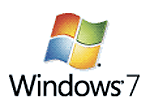 What I’m reading this morning:
What I’m reading this morning:
Twitter-like makeover for Facebook.
Ballmer: Windows Mobile needs work.
Amazon’s selling used video games.
Pogue slams Samsung’s Memoir phone.
Facebook spurns poor Ms. Batman.
Windows 7’s revamped UAC: useless?
 What I’m reading this morning:
What I’m reading this morning:
Twitter-like makeover for Facebook.
Ballmer: Windows Mobile needs work.
Amazon’s selling used video games.
Pogue slams Samsung’s Memoir phone.
Facebook spurns poor Ms. Batman.
Windows 7’s revamped UAC: useless?
 You have an insatiable need for free tools, I know, and there’s no reason to deprive you. I have seven gems for you, and all but one are freebies. Plus I have a quick follow-up about passwords and security.
You have an insatiable need for free tools, I know, and there’s no reason to deprive you. I have seven gems for you, and all but one are freebies. Plus I have a quick follow-up about passwords and security.
You think you might have a couple of duplicate files on your system? (Don’t be silly — of course you do.) Easy Duplicate File Finder (see image) is a handy freebie that will dig around and show you where they’re lurking. I like being able to choose specific folders, use a mask to find only certain files, and either rename or move dupes.
 San Francisco’s too rainy today:
San Francisco’s too rainy today:
Apple layoffs? Supposedly not true.
Will Washington prohibit iPhone exclusivity?
Windows 7 for Netbooks: dicey?
Nvidia reaps Mac desktop windfall.
Hackers mock Apple’s Safari browser.
Obscure, good Microsoft Web services.
Sprint’s Treo Pro: March 15th.
 Me, I’m mournin’ Computer Shopper:
Me, I’m mournin’ Computer Shopper:
Asus preps ultra-thin netebook.
Newsday’s site wants your money.
Apple kills Emoji (er, Emoji?).
Amazon Kindle 3 Rumors. Already?
JPG Magazine will return soon.
“Vista-Capable” lawyers fight on.
Google is Tweeting. Very successfully.
Hearst plans Kindle for magazines.
Japan stops BlackBerry Bold sales.
No surprise: identity theft up.
 With Microsoft looking understandably anxious to wrap up major work on Windows 7 and get it out the door, there’s been lots of speculation over just how willing the company would be to make changes to the OS’s functionality based on user feedback from the beta release. A new post at Microsoft’s official Engineering Windows 7 blog shows that it’s not adverse to to tweaks: The post lists dozens of fiddly little refinements to the interface based on testers’ requests.
With Microsoft looking understandably anxious to wrap up major work on Windows 7 and get it out the door, there’s been lots of speculation over just how willing the company would be to make changes to the OS’s functionality based on user feedback from the beta release. A new post at Microsoft’s official Engineering Windows 7 blog shows that it’s not adverse to to tweaks: The post lists dozens of fiddly little refinements to the interface based on testers’ requests.
The post says that it doesn’t cover all the changes since the beta. I’m curious about HomeGroups networking, which isn’t mentioned in the list of revised features–I agree with my friend Scot Finnie that the implementation of the feature in the Windows 7 beta is clunky and unrefined. (Windows gives you a password for your HomeGroup that can’t be changed, and if there’s a way to move a PC from one HomeGroup to another, I haven’t figured it out.)
It does look like Microsoft has locked down Windows 7’s basic feature set: Unless it’s holding back some surprises to spring on us at the last moment, we may know about all the key features that the OS will sport. But given that Microsoft historically hasn’t been great at nailing fit-and-finish of new features from the get-go, it’s a relief to see that it’s taking the time to polish up Windows 7 before declaring it finished. A Windows 7 that was less refined than the average past Windows upgrade would have been kinda alarming.
 Good morning–news is served:
Good morning–news is served:
Nokia might make Symbian laptops.
Google Street View’s user photos.
Google News gets ads. Finally.
Find iPhone vulnerability, get money.
The president isn’t Tweeting nowadays.
LG phone sports detachable keyboard.
Jeepers, more Microsoft-Yahoo speculation.
Rumors about PSP successor persist.
Is Windows Mobile 6.5 obsolete?
Vista SP2 release candidate imminent.
Dell’s 10-inch netbook arrives.
It’s open until noon on Friday, and we’d love to get the input of as many W7 beta testers as possible. Details here. Thanks!
 At an analyst meeting in New York City today, Microsoft CEO Steve Ballmer revealed that the company was working on a low-end edition of Windows 7 that’s designed to run on netbooks. The increasingly popular budget notebooks rarely run Windows Vista, in part because that OS’s hardware requirements–formulated in the pre-netbook era–simply exceed what most 0f the low-cost machines have to offer.
At an analyst meeting in New York City today, Microsoft CEO Steve Ballmer revealed that the company was working on a low-end edition of Windows 7 that’s designed to run on netbooks. The increasingly popular budget notebooks rarely run Windows Vista, in part because that OS’s hardware requirements–formulated in the pre-netbook era–simply exceed what most 0f the low-cost machines have to offer.
Microsoft’s interest in netbooks is an acknowledgment that Windows 7 needs to compete with lower-cost solutions that come preloaded with Linux and even Windows XP. Other potential entrants, including Google’s Android OS, are also threatening Windows’ dominance.
The company’s failure to compete in the low-end market has profoundly impacted its finances. Windows client revenue recently fell 8% as a result of PC “market weakness and a continued shift to lower priced netbooks,” according to Microsoft’s second-quarter earnings release. Even so, Ballmer stated that about 90 percent of netbooks have been shipped with Windows XP, during today’s conference.
And that trend is significant: netbook sales are steadily increasing. This month IDC found that netbooks account for 30% of sales in the Europe, Middle East and Africa (EMEA) market alone.
Outlining Microsoft’s strategy to appeal to netbook buyers, Ballmer said that Microsoft is developing a low-end version of Windows 7 designed specifically for netbooks, and will provide an upgrade path to more powerful versions of the OS. Windows 7 is designed to work well on inexpensive laptops, he said.
Ballmer didn’t talk about what features the Windows designed for netbooks will and won’t offer, but the company has already announced that the bargain-basement Windows 7 Starter Edition will only let users run three programs at once. My take is that Microsoft would be wise not to appreciably limit the functionality of Windows 7 on netbooks, or customers will vote with their feet, and PC manufacturers will choose another operating system that makes the most of what netbooks have to offer.
 Back on January 9th, Microsoft released a beta version of Windows 7 that was free to anyone who was interested enough to installand try it. That was long enough ago for some of those users to have logged lots of time in this rough draft of the new OS and formed strong, well-informed opinions about its pros, cons, and bottom line.
Back on January 9th, Microsoft released a beta version of Windows 7 that was free to anyone who was interested enough to installand try it. That was long enough ago for some of those users to have logged lots of time in this rough draft of the new OS and formed strong, well-informed opinions about its pros, cons, and bottom line.
Hence this survey. If you’ve used the beta, well ask you some questions about specific features and the OS in general, and we’ll use what we learn as raw data for an upcoming article. There are no right or wrong answers–just be honest.
What if you haven’t used the Windows 7 beta? You can still take the survey if you like–we just have fewer questions for you.
Thanks for participating–and please tell any friends you think might be interested. We’ll keep the survey open through 12pm noon PT on Friday, February 27th. Simply click the link below and the survey will start–you don’t even have to leave this page.
[techno-win7-survey]
 My colleague David Worthington reported on Thursday of Microsoft’s plans to open retail stores. I wanted to mull over the prospect before I said anything. It’s tempting to make fun of the concept–my PC World buddies and some PCW readers did a good job of that here–but I didn’t want to be impulsively snarky, or to come to any definitive conclusions about an idea that nobody (including Microsoft) knows all the details of just yet.
My colleague David Worthington reported on Thursday of Microsoft’s plans to open retail stores. I wanted to mull over the prospect before I said anything. It’s tempting to make fun of the concept–my PC World buddies and some PCW readers did a good job of that here–but I didn’t want to be impulsively snarky, or to come to any definitive conclusions about an idea that nobody (including Microsoft) knows all the details of just yet.
But as I’ve thought it over, I keep coming back to one thought. The Apple Stores work because Apple makes a limited, consistent, well-integrated set of products that make sense sitting on one set of store shelves. Microsoft doesn’t–its wares are vastly larger in number, far broader in mission, and less tied to each other. The company is a technology conglomerate in a way that Apple isn’t, and the notion of an all-Microsoft retail establishment makes me think of a Procter & Gamble store that sells Charmin, Pampers, Tide, Crest, Gillette Fushion razors, and Pringles chips under one roof.
